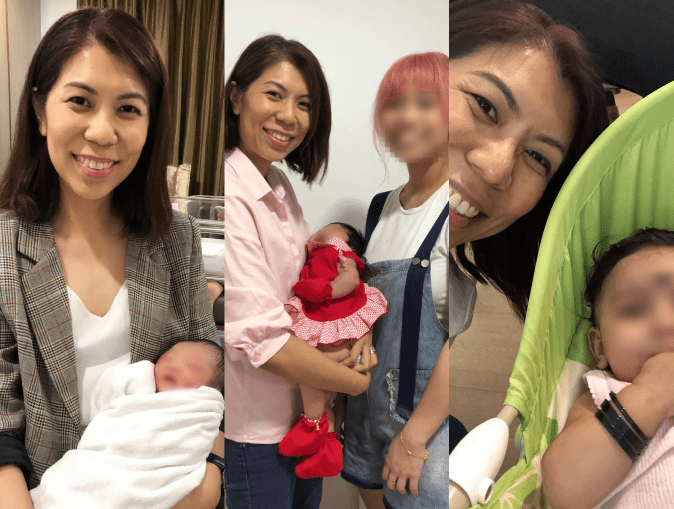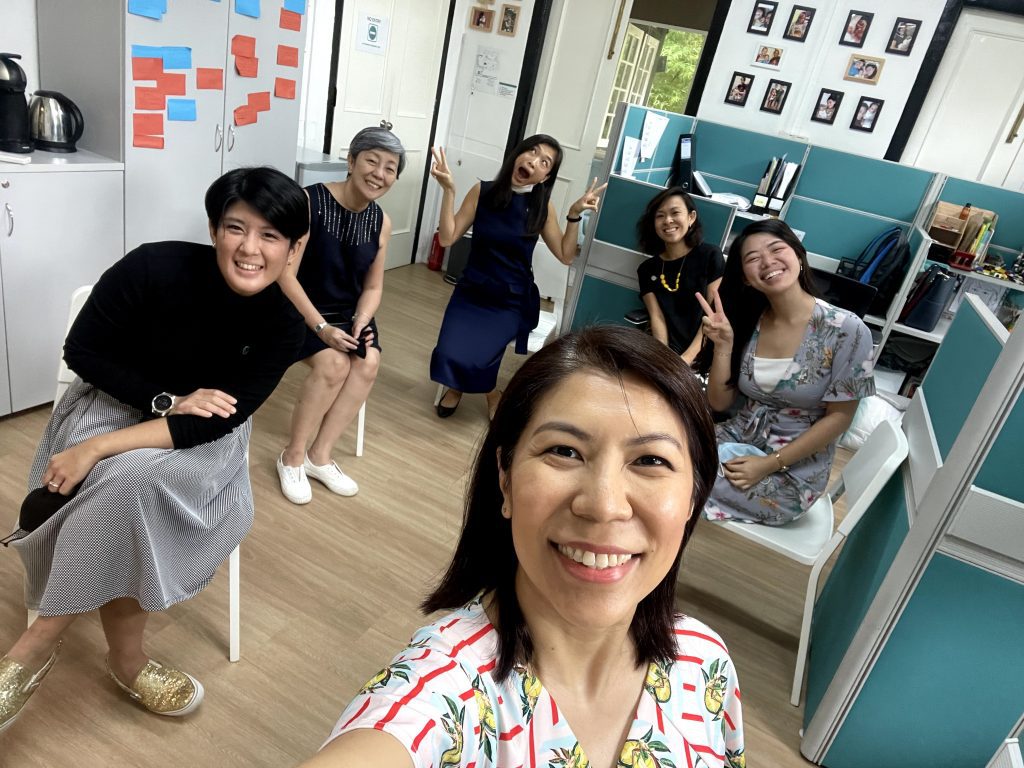Jennifer Heng is a calming presence. She answers each question during our interview thoughtfully, sharing the work of Safe Place – an initiative she founded in 2018 that offers shelter and help for women going through unsupported pregnancies.
Safe Place is a labour of love for Jennifer. The initiative (in partnership with Lakeside Family Services) is run on the backs of some 200 volunteers, including Jennifer herself – more on that later!

In the last four years, Safe Place has aided 270 pregnant women in need, offering them services like temporary shelter, counselling, and equipping them with life skills.
This desire to help comes from a deep personal connection. After all, Jennifer knows what it is like to be pregnant, scared, and alone.
The married mother-of-one has opened up in multiple media interviews about her turbulent teenage years, which saw her dabbling in unhealthy relationships as a way to escape an unhappy family situation.
By the tender age of 19, Jennifer had gone through two unplanned pregnancies that ended in abortions.
While she managed to rebuild her life, her traumatic past inspired her to start Safe Place. It has also allowed her to connect with women in similar positions, helping her to “break down walls.”
“I have been surprised by the magic of sharing my story,” says Jennifer. “At first, I was very scared of what people would think about me, and my family.”
“But when a pregnant woman in distress has heard my story, she feels like she’s not talking to just a professional. She feels like she’s talking to a human.”
Reaching Out To Mothers in Prison
Jennifer grows animated when talking about her latest passion: Reaching out to incarcerated mothers in prison. “It’s been a dream for a long time.”
Even though Safe Place has a wealth of experience working with pregnant women, incarcerated mums present a unique set of challenges.
For one, these mothers-behind-bars have restricted access to pre-natal care. They have to make heart-rending decisions while cut off from social support – such as whether to carry the baby to term, or to place the child for adoption if no kin is available.
After giving birth, the mothers hand over their newborns and are whisked back to prison. “They continue their life as though they were not pregnant ever. I… I cannot!” Jennifer exclaims, at a loss for words.
Together with Singapore Prison Services and Fei Yue Family Resource Centre, Safe Place has been running a programme that has reached out to close to 30 pregnant mums in prison and a further 8 young offenders in the last year.

The fledgling programme equips incarcerated mums with advice on maintaining their physical and socio-emotional wellbeing. For instance, how to do stretching exercises within the confines of a prison cell. “We also touch on the emotional side, like how to talk to their babies. We tell them baby can hear your voice in the womb,” Jennifer shares.
She acknowledges the need to balance compassion and care with the fact that incarcerated mums are meant to be serving time.
“One can say that we are talking about criminals. But I also believe there is no crime in giving birth,” Jennifer muses.
In the spirit of International Women’s Day, we asked Jennifer a series of questions about empowering women and girls, and how she finds the motivation to keep going.
7 Pieces of Wisdom From Jennifer
1. Her most profound lesson, working with vulnerable women
“How important it is to have someone believe in you. Many of the women we serve don’t have anyone telling them that they are any good. They tell us one of the most important things they receive through Safe Place is that we were there for them. We never gave up on them. Sometimes we think that just giving people money, a house, or physical things will change lives. But actually, it’s relationships that are life-changing.”
2. One small win she’s seen from the job
“A few of the pregnant inmates we worked with last year have been released from prison. What’s satisfying is that some of them come back to Safe Place looking for support and resources. And they open doors to their community. They’ll say “Oh, I know another friend who is pregnant, and is going to be released.” So they are the biggest ambassadors for our work!”
3. Why she has never drawn a salary from Safe Place
“Everybody asks me how I survive, are you a tai tai! Well, I’m not. Back in 2014, I started my first center to help women. I was going through a dark time battling depression and burnout from my previous job as a pastor. And I wanted to focus full time on supporting women.
I was convinced that I needed to be the biggest investor in the work. So I made a decision not to take a salary. If we do not believe in this work, then no one else is going to. Thankfully, I had the support of my husband who has a regular job. Interestingly, I have found that it has been easier to raise funds because donors feel they are talking to someone highly invested in the work.”
4. What keeps her going
“We cry a lot in this work. But what drives me is my belief that the work is not done. If I give up, who will take up the baton? And so I tell myself I will be the last one standing. We’re not just doing “work”, it’s not “just a job”. Real lives are being changed. Even if all we did was change one life, it’s worth it.”
5. How sharing about her past is powerful
“Often, women reach out when they need help or when they are forced to get help. It can create this dichotomy that they are the ‘needy ones’ on a different level from us. That’s a huge barrier when connecting with someone.
Being honest and vulnerable about where I came from can break down those walls, and the myth that ‘I’m here to help you because I’m better than you.’”
6. A piece of advice she shares with her team
“When working with women, I strive to identify strengths in them and bring their attention to it. And that’s something I impart to my team: Always look for the strength. Always look for the hope. And when you find it, affirm it.”
7. How the public can support Safe Place
“We are largely volunteer-run and always look for volunteers. Safe Place is also 100% self-funded so we welcome donations to continue our work.”




















